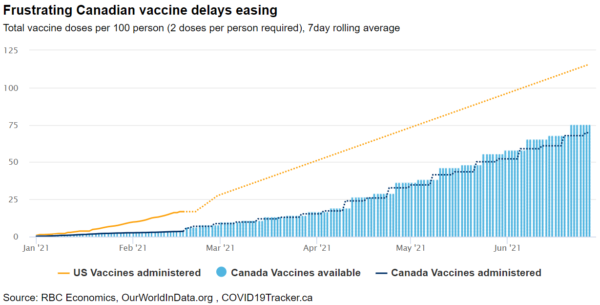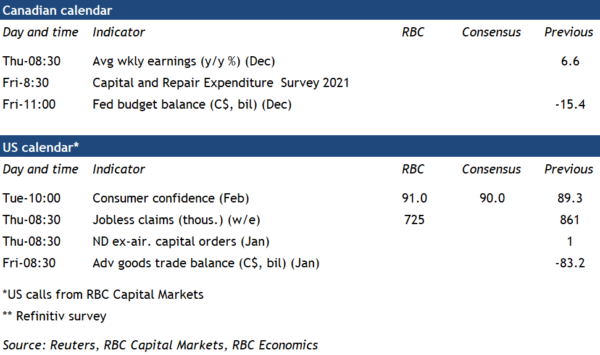Divergence between the hospitality sector and the broader economy has been a key theme in recent months. Next week’s release of (the usually closely watched) annual investment intentions survey from Statistics Canada will likely show a similar divergence. The Bank of Canada’s Q4 Business Outlook Survey already flagged a faster-than-expected bounce-back in business confidence among businesses in the industrial sector, and we expect that to broadly be evident in 2021 survey data as well. Investment plans in the oil & gas sector likely remained very low by historical comparison, but rising oil prices and some recovery in drilling activity as 2020 drew to a close set up for spending plans for 2021 to show an increase. In contrast, planned investment in the industries still being heavily impacted by virus spread and containment measures – largely the travel/hospitality/entertainment sectors – likely remained very soft.
Planned investment in non-residential structures will be watched closely given concerns about the long-run impact of the pandemic on required office space and retail brick-and-mortar footprint with more people now able to work and transact remotely. There are no such concerns about near-term residential investment given record new housing starts in January (282k annualized) and persistent strong permit issuance.
Week ahead data watch:
- We will be monitoring US consumer confidence in February to gauge whether the strong start to 2021 was sustained.
- Canada’s payroll employment data for December is expected to mirror weakness in the already released Labour Force Survey with job losses concentrated at the lower end of the wage scale where government support payments are relatively larger.
- The pace of vaccine distribution remains the most important determinant of economic growth expectations beyond the very near-term. The pace of deliveries of vaccine to Canada has already begun to accelerate with reassurances over the last week that companies are on track to deliver enough doses to vaccinate 14.5 million Canadians by the end of June (enough to vaccinate the vast majority of the population aged 50+, who have accounted for 99% of covid deaths in Canada to-date).


